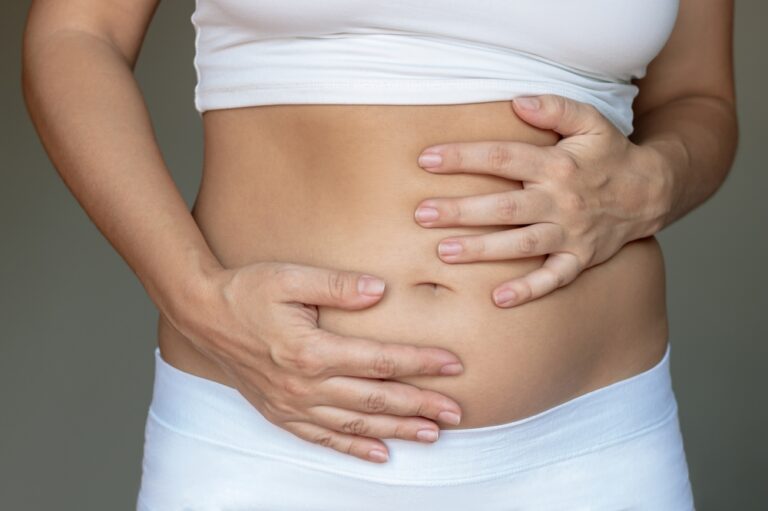Albany Gastroenterology Consultants Has Joined Allied Digestive Health, a Leading Gastroenterology Provider Network

A gut cleanse is a practice designed to enhance digestive health by removing toxins, waste, and harmful bacteria from the gastrointestinal tract. It often involves dietary changes, supplements, or specialized products intended to “reset” gut function and promote balance in the gut microbiome. While some people turn to gut cleanses to alleviate issues such as bloating, digestive problems, or fatigue, it’s essential to understand the science and consult with a healthcare provider to determine whether this method is suitable and effective for individual needs.
Bloating is a common digestive issue that can result from various factors. One of the most prevalent causes is the consumption of gas-producing foods, such as beans, lentils, broccoli, cabbage, and carbonated beverages. Eating too quickly or swallowing air while drinking can contribute to excess gas in the stomach. Food intolerances, particularly to lactose or gluten, may also lead to bloating as the body struggles to digest certain compounds.
Another potential cause is an imbalance in the gut microbiome, where an overgrowth of harmful bacteria creates excessive gas and discomfort. Hormonal fluctuations, particularly in women during menstruation, and certain medical conditions like irritable bowel syndrome (IBS) or constipation may also play a role. Identifying the specific cause of bloating is essential for effective management and relief.
A gut cleanse is often marketed as a solution for bloating, promising to eliminate toxins and reset the digestive system. While some individuals may experience temporary relief, the effectiveness of gut cleanses largely depends on the underlying cause of bloating. Cleansing protocols that involve high-fiber foods, probiotics, and adequate hydration can improve gut health by supporting beneficial bacteria and promoting regular bowel movements.
However, extreme cleanses or the use of harsh laxatives may disrupt the gut microbiome, potentially causing more harm than good. It’s essential to approach a gut cleanse with caution and prioritize sustainable, long-term dietary habits for genuine relief from bloating. Consulting a healthcare professional before starting a gut cleanse is always recommended to ensure it aligns with your body’s unique needs.
Gut cleanses can offer both benefits and drawbacks, so it’s crucial to weigh these carefully before deciding to try one.
Pros:
Cons:
A balanced approach to gut health, emphasizing a fiber-rich diet, hydration, and moderation, is often more effective than restrictive cleanses in the long term.
Rather than resorting to extreme cleanses, adopting safer and more sustainable habits can effectively support digestive health. Here are some alternatives to consider:
These habits foster a balanced approach to digestive health, creating lasting benefits without the risks associated with extreme methods.
While bloating is often a benign and temporary discomfort, in some cases, it can signal underlying health concerns that require attention. Persistent or severe bloating, accompanied by symptoms such as unintentional weight loss, abdominal pain, blood in the stool, or changes in bowel habits, may indicate conditions like irritable bowel syndrome (IBS), inflammatory bowel disease (IBD), or food intolerances, such as celiac disease.
Additionally, bloating that does not resolve with lifestyle adjustments or dietary changes could point to gastrointestinal infections, hormonal imbalances, or more serious issues like tumors or blockages. If you experience prolonged or unusual bloating, it is essential to consult a healthcare professional for a proper evaluation and diagnosis. Early detection can ensure timely treatment and prevent further complications.
It is crucial to know when bloating may warrant a visit to your doctor. A healthcare professional should address persistent bloating that lasts for weeks or worsens progressively. Additionally, if bloating is accompanied by alarming symptoms such as severe abdominal pain, unexplained weight loss, blood in the stool, fever, or vomiting, medical attention should be sought immediately.
These signs could indicate underlying conditions that require prompt investigation and treatment. Please remember that the professionals at Allied Digestive Health are best equipped to determine the cause of your symptoms and guide you toward the most appropriate course of action.
For Your Visit
Albany
P: (518) 533-5000
F: (833) 438-1946
1375 Washington Ave, Suite 101
Albany NY, 12206
Office & Lab: Suite 101
Endoscopy Center: Suite 201
Infusion Center: Suite 101
Mon – Thurs: 7:30 AM – 5:00 PM
Fri: 7:30 AM – 4:00 PM
Sat & Sun: Closed
Clifton Park
P: (518) 533-5000
F: (833) 438-1946
1785 Route 9, Suite 101
Clifton Park, NY 12065
Mon – Thurs: 7:30 AM – 5:00 PM
Fri: 7:30 AM – 4:00 PM
Sat & Sun: Closed
© All Rights Reserved